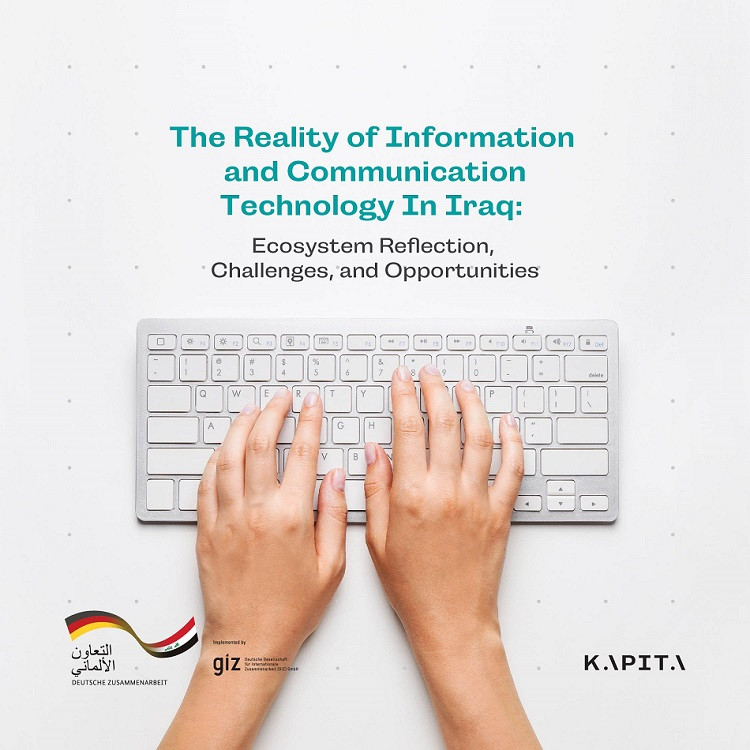Information and communications technologies (ICT) is a generalized term that contains in its folds all devices, networking components, applications, and systems that allow people and organizations to interact with the digital world.. This publication is part of Business LANDSCAPE series which a series of research publication aims to highlight the current situation of Iraq’s economy and private sector through publishing researches and data and make it freely available for the benefit of investors, and the local and international community This study is published in partnership with German Government via the Deutsche Gesellschaft für Internationale Zusammenarbeit (GIZ) GmbH. | 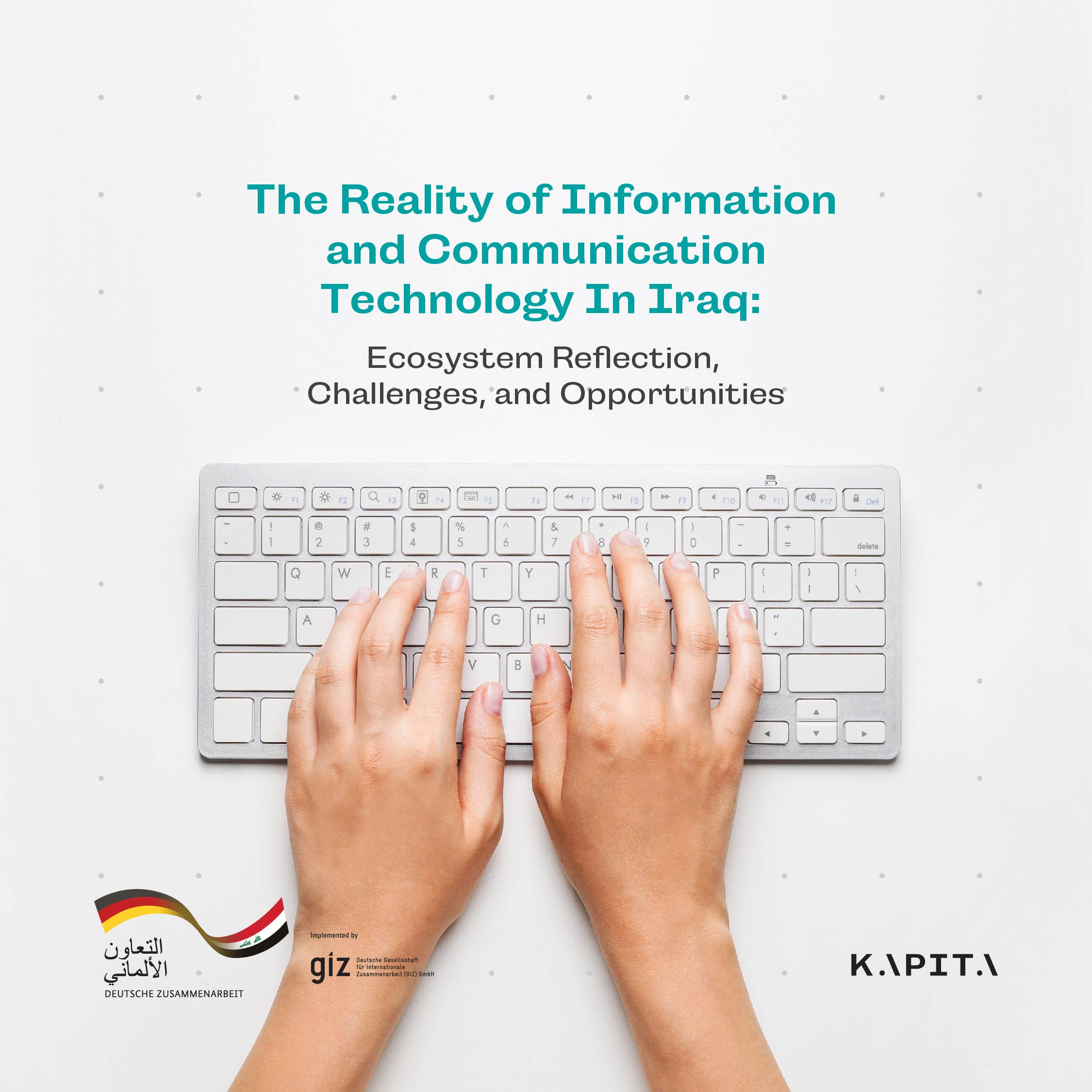 |
In this report, we look into the demands and needs of ICT-related skills in the Iraqi market, how to address the issues that are facing both employers and employees, and finalize it by attempting to bridge the gap between the two.
Information and communications technology skills is an umbrella term that covers a wide range of technical skills. Therefore, in order to benefit from this research, a clear definition of such skills is required. Accordingly, we have categorized ICT skills into basic skills, specialized, and programming digital skills.
This research aims to evaluate the digital skills levels of students, graduates, and employees, assess the private sector's digital skill demands, explore the individuals and ecosystem scene and challenges, and Identify the available training opportunities.
In the evaluation of the labour force condition, it was found that the majority of respondents believe that the educational system does not provide them with the proper skills. While less than 12% of respondents still believe in the educational system’s capability in providing students with the necessary skills to work within the private sector.
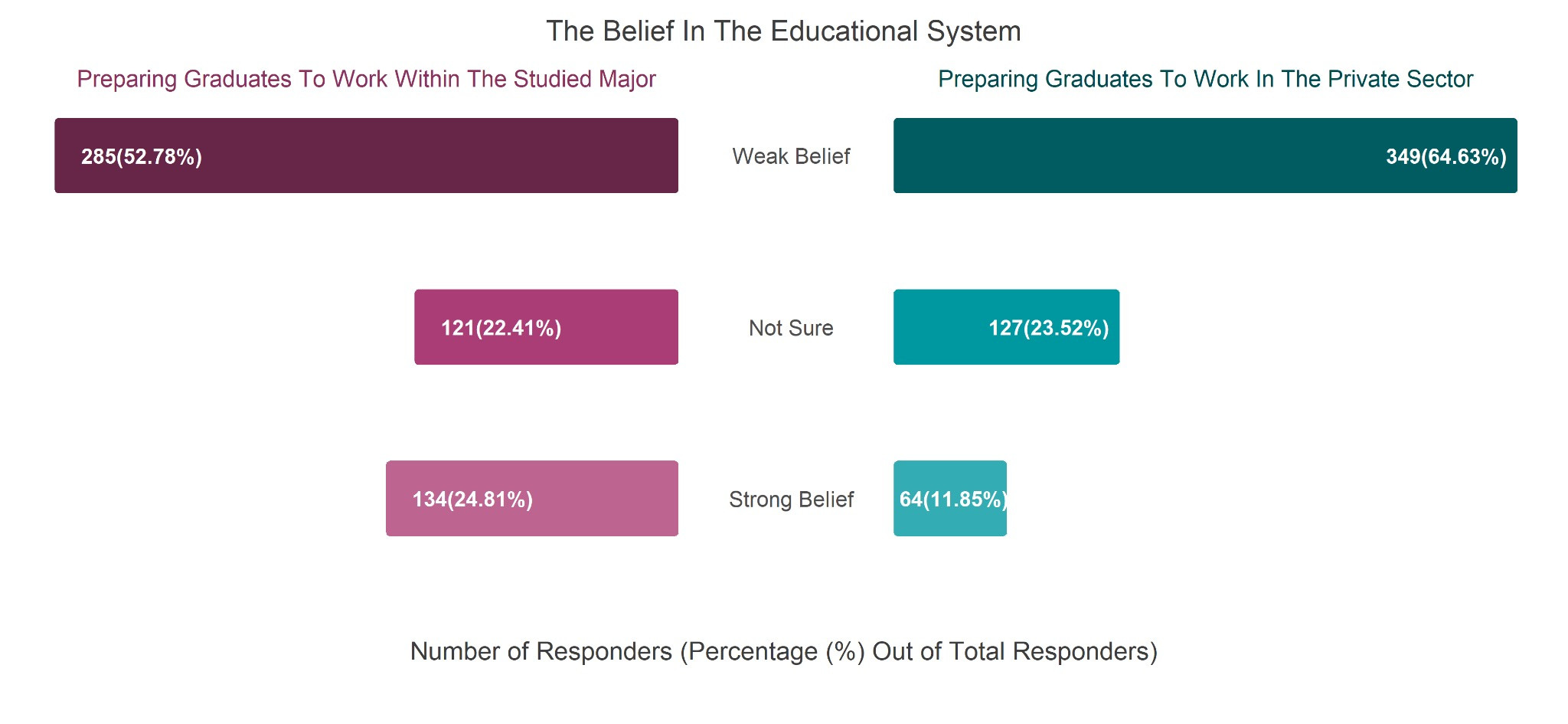
In our assessment, it was found that basic skills requested from most employees regardless of their duties included web search, conducting video conferences, email communication, word processing, preparing presentations, and handling spreadsheets. We asked participants to self-assess their skills in the aforementioned aspects. The skill that almost 90% of all respondents were confident in excelling or being good at was web search, followed by video conferencing with more than 75% of respondents their skill as good or excellent. Email correspondence and word processing skills had similar results with a little more than 35% of respondents averaging as excellent. Around 20% of respondents assessed their skills as poor and very poor in handling spreadsheets and preparing presentations.
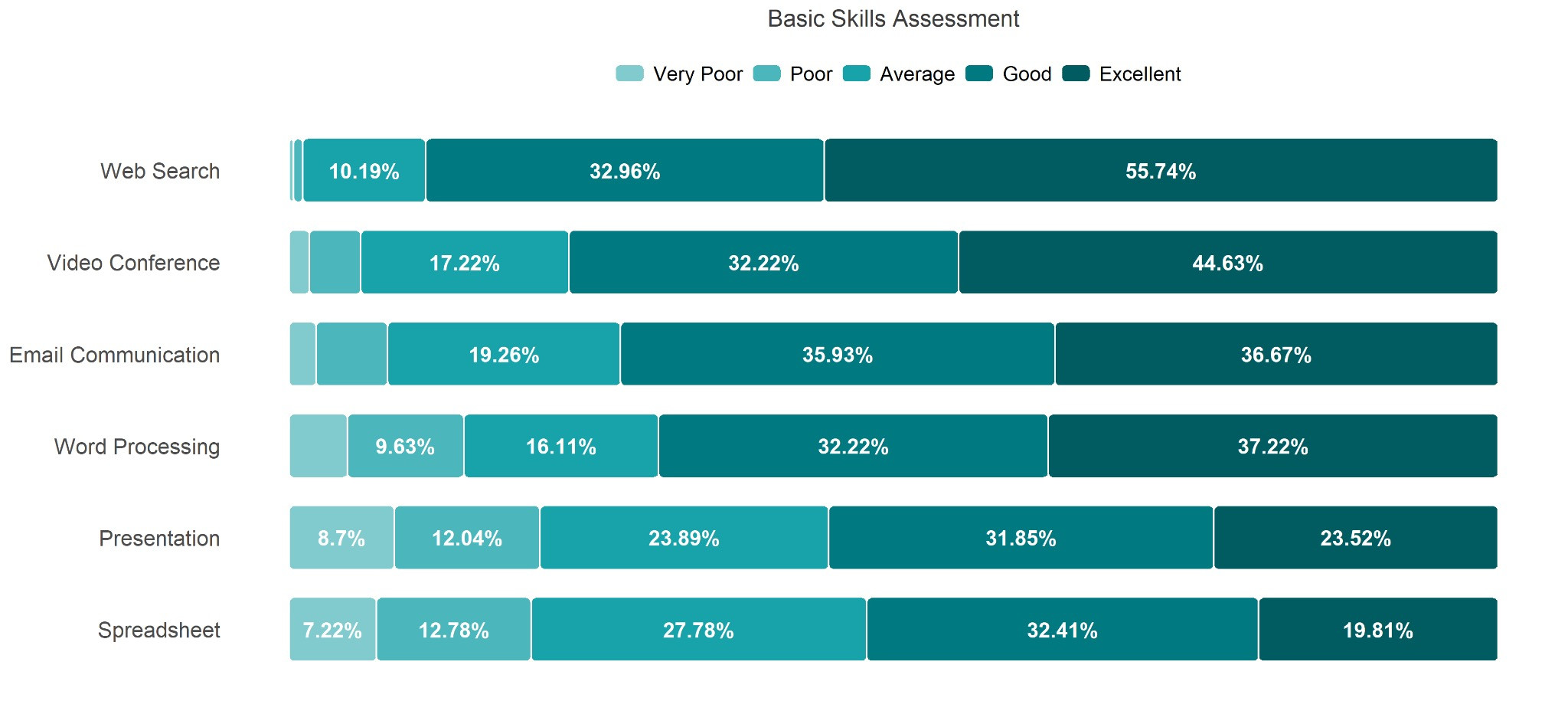
In addition, this research tries to convey an accurate picture of the job demands in the private sector, KAPITA’s team went through 374 jobs within the information and communication technology to provide data-driven insights to the Iraqi private sector and establish a reference point for future studies.
We reviewed all job postings in the first half of 2021, most of these postings (81%) asked for candidates with Microsoft Office skills and proper knowledge in the use of emails. Around 12% and 7% specified knowledge in using MS Excel and MS word, respectively. Out of all digital-related job postings during that period, 7% of them were looking for accountants, 4.7% for office managers, and 3.5% for a secretary and an IT officer.
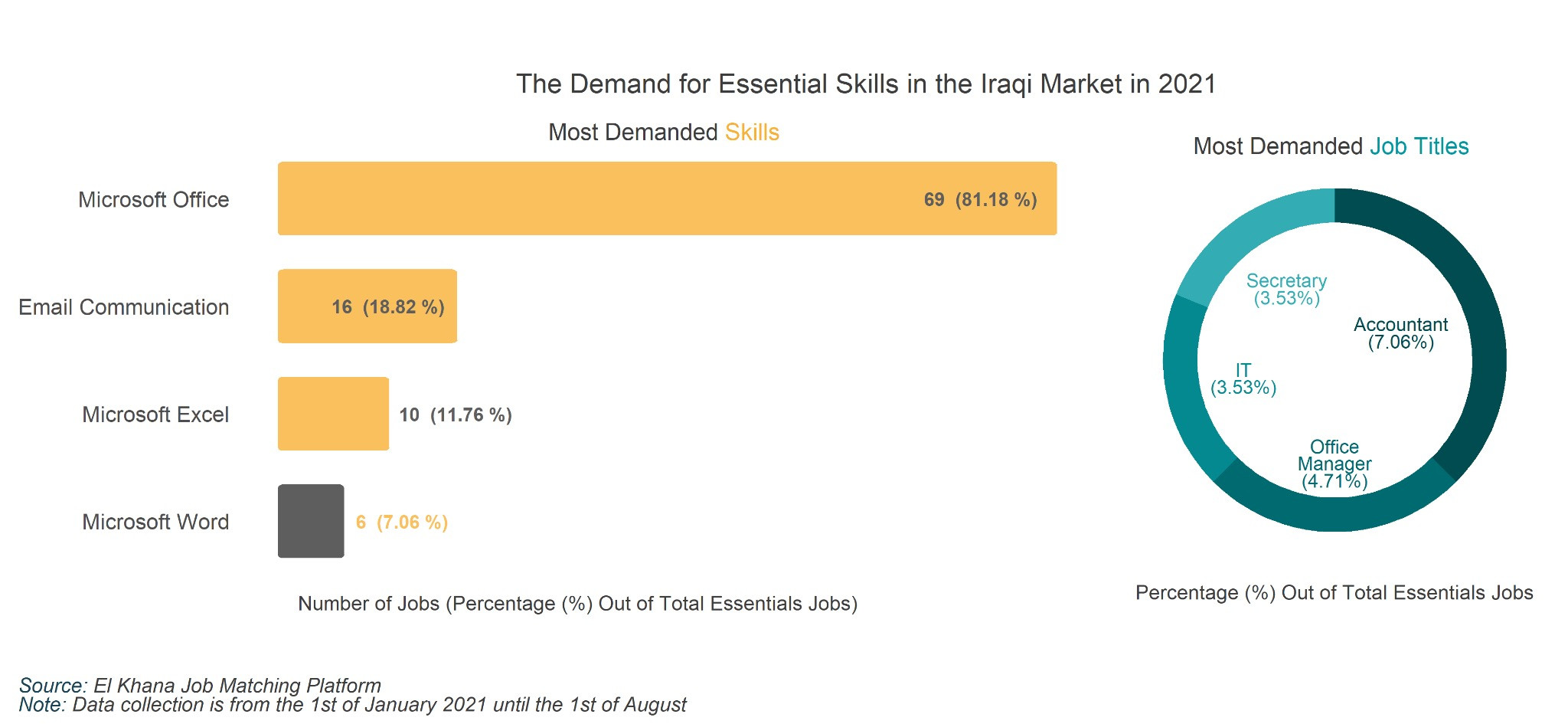
Furthermore, this research conducted in-depth interviews with experts to get their valuable insights to further understand the ecosystem from a different perspective.
As a result, this piece encompasses multiple interviews done with top-level leaders in the Iraqi private sectors such as vice presidents, founders of large enterprises, senior human resources, chiefs information officers, and senior designers. Each one of the interviewees was picked because of his/her experience
The interviews were followed by critical thematic analysis and five major themes were identified and they are as follows: what companies are looking for, the current recruitment process, key identified problems including, creating talent magnet companies, and gender-specific limitations.
Furthermore, this research covers the available opportunities for the youth to improve and develop their skills and provides brief summaries of the entrepreneurial support organizations and technical and vocational education and training (TVET). The research concludes with the recommendation to bridge the gap between the supply and demand of skills in the Iraqi job market.
